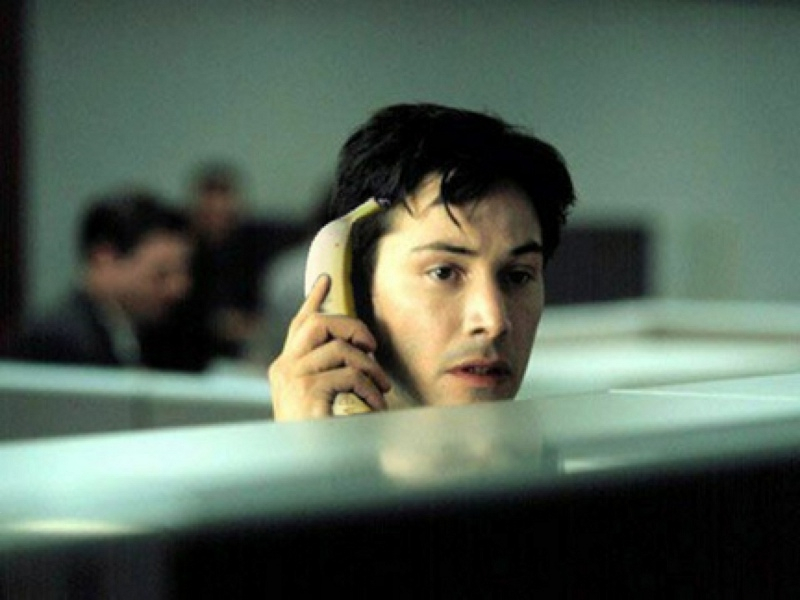One of the 20-somethings I’ve been working with over the past few weeks sent me a summary put together by another Millennial colleague of Sherry Turkle’s book, Alone Together: Why We Expect More from Technology and Less from Each Other. An MIT technology and society specialist, Turkle argues that our relentless modern connectivity leads to a new disconnect. As technology ramps up, our emotional lives ramp down. Hell in an handbasket, yadda yadda.
The Millennial reviewer called it “a fascinating and highly depressing affirmation of many of the problems that face my sister and I’s generation.” The summary includes such gems as:
– Young adults often cite the awkwardness of attempting to steer a phone call to its conclusion as one of the top reasons they avoid phone calls. This skill is not one that teens seem open to learning as a quick “got to go, bye” is easier than determining a natural way to break off a conversation.– Teens avoid making phone calls for fear that they reveal too much. Texting is easier and “more efficient” than a human voice. Things that occur in “realtime” take far too much time. Even adults and academics admit that they would rather leave a voicemail or send an email than talk face-to-face.– We used to live in an era when teenagers would race to the ringing phone after suppertime, now teens are content with receiving fewer calls in favor of texts or Facebook messages.
Why is telephone-based behavior the benchmark of communication proficiency?
The telephone isn’t part of our biology. It is, itself, a completely unnatural, manufactured, utterly awkward medium that we all learned to take communication through for granted.
It could be lamented that “kids these days” dont know the etiquette of visiting card communication either — which is what people had to resort to before the phone:
Visiting cards became an indispensable tool of etiquette, with sophisticated rules governing their use. The essential convention was that one person would not expect to see another person in her own home (unless invited or introduced) without first leaving his visiting card for the person at her home. Upon leaving the card, he would not expect to be admitted at first, but might receive a card at his own home in response. This would serve as a signal that a personal visit and meeting at home would not be unwelcome. On the other hand, if no card were forthcoming, or if a card were sent in an envelope, a personal visit was thereby discouraged. As an adoption from French and English etiquette, visiting cards became common amongst the aristocracy of Europe, and also in the United States. The whole procedure depended upon there being servants to open the door and receive the cards and it was, therefore, confined to the social classes which employed servants. If a card was left with a turned corner it indicated that the card had been left in person rather than by a servant.
I mean, oy. You know?
The summary goes on:
For young adults electronic media “levels the playing field” between outgoing people and shy people, removing the barrier of awkward conversations and body language. Texts allow a two-minute pause to become normal and acceptable while the recipient thinks of an adequate response. The same is not possible in face-to-face conversations. Screens offer a place to reflect, retype and edit.
The assumption here being that two minutes is NOT acceptable? For the thousands of years when all we had was the paper operating system, it could take two months, or TWO YEARS to get a reply. The drama of the entire ouvre of Jane Austen and the Bronte sisters hinges on telecommunications not having been invented, just as much as the drama of Ferris Bueller’s Day Off hinges on cell phones not having been invented.
So why are we lamenting the telephone and all its associate UI becoming irrelevant and obsolete? (Current unlistened-to voicemails count: 49. You?) It was never meant to last forever. The telephone is like whale blubber. Brian Eno knows what I’m talking about:
“I think records were just a little bubble through time and those who made a living from them for a while were lucky. I always knew it would run out sooner or later. It couldn’t last, and now it’s running out. I don’t particularly care that it is and like the way things are going. The record age was just a blip. It was a bit like if you had a source of whale blubber in the 1840s and it could be used as fuel. Before gas came along, if you traded in whale blubber, you were the richest man on Earth. Then gas came along and you’d be stuck with your whale blubber. Sorry mate – history’s moving along. Recorded music equals whale blubber. Eventually, something else will replace it.”
Music existed before the plastic disc, and it will continue to exist after the MP3. Communication existed before the telephone, and it will continue to exist after the text message.
It just takes a frame of reference broader than what one generation takes for granted — or finds foreign — to see it.
